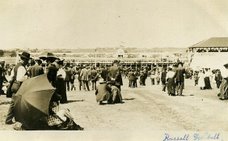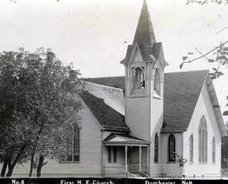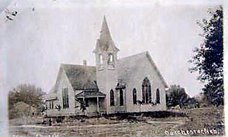An interesting piece recently ran at the International Business Times. It points out that since the 1950s, Americans living in rural counties have had a higher rate of poverty than those living in and around large cities.
"Poverty in rural America was then exacerbated in the 1970s as big box stores moved in, often leading to the shuttering of once-thriving local retail businesses," the article notes. Making matters worse was China being granted entrance into the World Trade Organization (WTO) in the 1990s by then-President Bill Clinton -- a move that eventually killed manufacturing jobs in many in small towns and rural areas.
That was then. This is now.
After more than 70 years of being shunned, rural America is now cherished once again as people are moving to rural areas in ever-increasing numbers. While this trend was emerging even before the pandemic, the urban riots, government-imposed lockdowns, and violent crime that exploded in 2020 (and has continued in most cities) has accelerated the rural movement.
Large corporations seem, for now, bent on continued investment in urban America. But we question how much longer that can last.
According to Paulsen, a Sioux Falls-based marketing agency, more Americans want the sense of community, affordability, and the values found in rural areas. A survey conducted by Paulsen shows that when telecommuting is an option, two-thirds of Americans say that they would consider moving to a rural home or a subdivision.
The Paulsen survey also interviewed those who had already recently moved to a rural area. The top reasons those folks gave for leaving large cities included the desire for: more land or space; fewer people; more home for less money; a safe environment with clean air and water; lower cost of living; no traffic; a different culture; and living in a place with different political affiliation.
This moment brings a tremendous opportunity for Dorchester and other rural towns. But to capitalize on the current trends, our community must ensure the following for residents (and future residents):
- A reliable internet connection. (This is one of the biggest issues that some folks have with the rural migration.)
- Welcoming community organizations and activities. (Groups need to actively reach out and invite new/existing residents to join and participate, not just expect them to show up.)
- Employment opportunities. (These need to be publicized.)
- Access to retail and shopping locations. (Dorchester has a geographical advantage.)
More than any other time, Americans feel they have mobility -- the freedom to live where they want. When the history books discuss the COVID-19 era, we predict the major theme will be the rapid decline of major cities and the simultaneous revitalization of rural areas.
To make the most of this moment, Dorchester must be ready.



















































No comments:
Post a Comment
Village Dweller checks all reader comments to determine if they are appropriate for print.